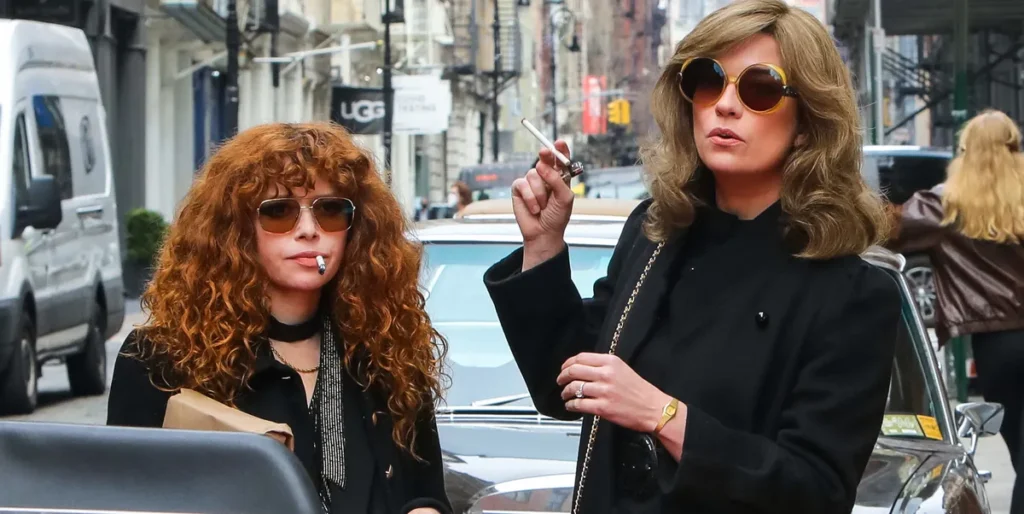Russian Doll Season 2 Review
Natasha Lyonne is a force to be reckoned with, and season 2 of Russian Doll does its best to display her vibrancy. Three years ago, Netflix released season 1 of Russian Doll. It was a show that came out of nowhere with no big fanfare before it dropped. No big PR tour or huge marketing push. It didn’t matter as the first season was so charmingly delightful, that word of mouth pushed it to the forefront. Simply put, this season just isn’t as good as the first one.
Nadia Vulvokov (Natasha Lyonne) is turning 40. It’s been four years since her birthday party of endless death. She thinks this birthday should be casual, maybe just sitting on the couch with Alan (Charlie Barnett). The world has something different in store for Nadia. She gets on the 6 train at Astor Place station and winds up going back to 1982. It’s the year that her mother Nora (Chloë Sevigny) is pregnant with her. In a terrifying moment of recognition, Nadia realizes she is inhabiting Nora’s body while in that time.
Natasha Lyonne is enigmatic. She stomps around New York, and further afield in later episodes, in dazzling coats and big sunglasses. Her hair alone draws the eye to every frame. Her portrayal as Nadia, a woman dealing with intergenerational trauma, is delightful to watch. After what happened four years ago, Nadia isn’t even shaken when she realizes she’s in 1982. She gets upset only after she sees that she’s in her mother’s body. In season 1, viewers saw how Nora raised Nadia – how angry and hurt Nadia is to this day. Season 2 of Russian Doll highlights Nadia finally grappling with those emotions.

Alan’s story is much smaller in season 2 than in season 1. He ends up having a similar experience to Nadia, but he travels to 1960s Berlin. He ends up in the body of his grandmother Agnes (Carolyn Michelle Smith). Unfortunately, and my biggest critique of the season, is that his story is a little too small compared to Nadia’s. It also doesn’t really connect with Nadia’s the way their stories were interwoven by the end of season 1. More time with Alan in general, as well as Nadia and Alan together, might have benefited the season’s overall story.
By having Nadia and Alan separate every time they journey to the past, both characters end up talking to themselves aloud. The characters need each other. Plus, the audience needs to see more dialogue between the characters rather than just Nadia talking to herself. By episode 6, it’s also frustrating to see Nadia constantly talk to people in the other timelines like they should know who she really is. Young Ruth (Annie Murphy) even tells Nadia, as Nora, to be real and listen to her when she’s rambling about how she’s not Nora.

Like season 1, season 2 is beautiful. More and more content, especially content on Netflix, all looks the same and is overly lit and harsh. Russian Doll is gorgeously shot. Every location is thoughtfully chosen, and the show does a good job of making every place and time feel unique and striking. The viewer will know exactly where and when they are at every moment in the show.
The season comes to a satisfying and bittersweet conclusion, where the main characters and viewers must confront why they do what they do. Nadia makes a dire mistake that begins ripping apart the fabric of time, allowing the show to smartly reference season 1 in the finale. After Nadia and Alan confront why they are the way they are – family trauma, how they were raised, their own decision-making – it’s time to move forward and start living.
Watch Russian Doll Now Streaming

































